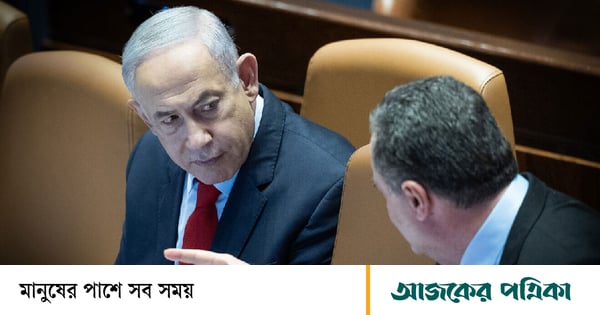Israel and Lebanon are close to a ceasefire agreement, Israeli and US officials say. The Israeli cabinet will hold a meeting on Tuesday to discuss the deal.
A 60-day ceasefire has been proposed, the BBC reported on Monday night. That would end the conflict between the Iran-backed Lebanese Hezbollah group and militia and Israel. As a result, Israeli troops will be withdrawn from southern Lebanon and Hezbollah fighters will not be able to stay in the area.
Earlier, there were many talks about the ceasefire agreement, but the conflict is constantly increasing. About 250 rockets were fired from Lebanon towards Israel yesterday (Sunday). However, Israel intercepts most of these rockets. On the other hand, the Israeli forces have also carried out airstrikes targeting Hezbollah bases and arsenals in various places, including Beirut in Lebanon.
A Western diplomat said the deal would increase Lebanon's military presence in areas vacated by Israel and Hezbollah.
Israeli Prime Minister Benjamin Netanyahu has agreed to the deal, BBC reports. And Lebanon's deputy parliamentary speaker, Elias Bou Saab, said that there are no serious obstacles to the ceasefire.
There was earlier dispute over which side would observe the cease-fire agreement. But that too has been resolved by forming a committee of five countries. The committee will be led by the United States and will include France.
But Israel insists that if Hezbollah retreats south of the Litani River or prepares to attack, it will launch operations there again. Hezbollah and the Lebanese government had some objections to this condition.
Israel's far-right National Security Minister Itamar Ben Givir, meanwhile, opposed the ceasefire agreement, calling it a “serious mistake”. He opined that currently Hezbollah is in a weak position militarily. So the historic opportunity to destroy them should not be missed.
The conflict erupted between the two sides when Hezbollah launched rocket attacks on Israel in support of Gaza's Hamas on October 8 last year. Recently, Israel launched a major campaign against Hezbollah. It destroyed Hezbollah's infrastructure and killed some of its top leaders, including its leader Hassan Nasrullah.
According to Lebanese authorities, 3,750 people have been killed and 15,600 wounded in Lebanon since October 2023. More than 1 million people have been displaced.

